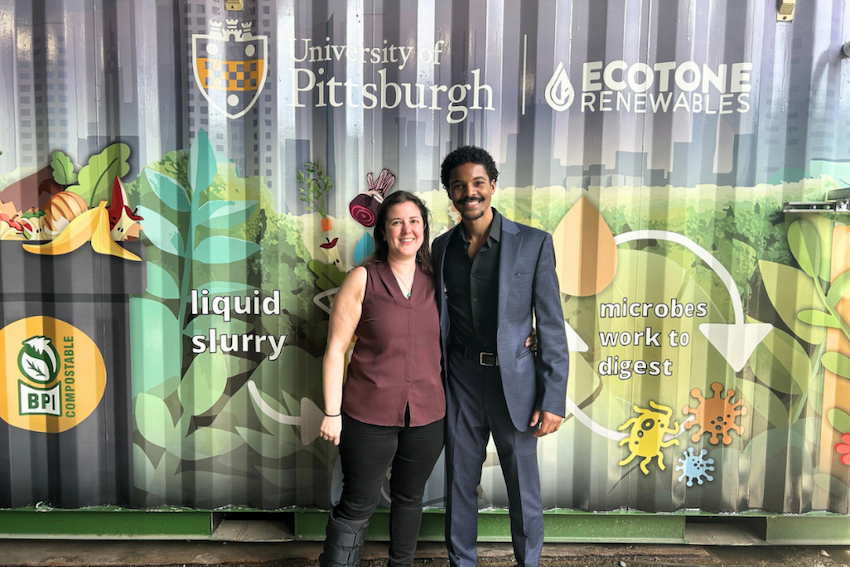After winning the Pitt Sustainability Challenge in 2023, Ecotone Renewables launched the first of 5 anaerobic food digesters at Pitt in late 2024 at Posvar Hall. Co-founded by Pitt alum Kyle Wyche, Ecotone Renewables will install additional organic recycling unit across Pitt campuses.


30% of all the food produced in America goes to waste, with 13% of that total from higher education dining halls. In other words, 22 million pounds of food from college campuses is tossed out annually.
In 2019, Pitt alum Kyle Wyche recognized this issue and co-founded Ecotone Renewables. Their team would go on to develop Zero Emissions Upcycling Systems (ZEUS), an anaerobic digestion system that converts organic materials into fertilizer. Cleverly housed in shipping containers, ZEUS units are now placed at colleges, hospitals, businesses, senior homes, and communities across the U.S.
In 2023, the University recognized the potential for ZEUS to recycle organic materials and reduce carbon emissions on campus, and crowned Ecotone Renewables the winner of the Pitt Sustainability Challenge. That proposal included installing and operating 5 Ecotone ZEUS anaerobic digesters across Pitt campuses, complementing existing compost diversion with additional organics recycling. ZEUS will contribute to Pitt’s journey to reach carbon neutrality by 2037; each gallon of Soil Sauce avoids 90 pounds of carbon dioxide.
Ecotone’s ZEUS units use anaerobic digestion, meaning microbes break down food and other organic and biodegradable materials without the help of oxygen. Prior to microbe digestion, any accidentally included inorganic materials (plastic, glass, and metal) are removed via internal sorting. As organic materials are broken down, ZEUS produces a liquid, organic fertilizer (dubbed “Soil Sauce”), which is rich in nutrients for landscaping and gardens.
Since the first Ecotone ZEUS digester was installed at Posvar Hall in November 2024, it has broken down 1,010 pounds of organic materials from across campus into Soil Sauce; the fertilizer is being tested on campus landscaping.
In late Summer 2025, a second Ecotone Renewables unit will be installed outside Sutherland Hall to recycle organic materials from The Perch (Pitt’s second largest residential dining hall). Future installations are planned for Pitt regional campuses.

